Posted on 7/18/2025
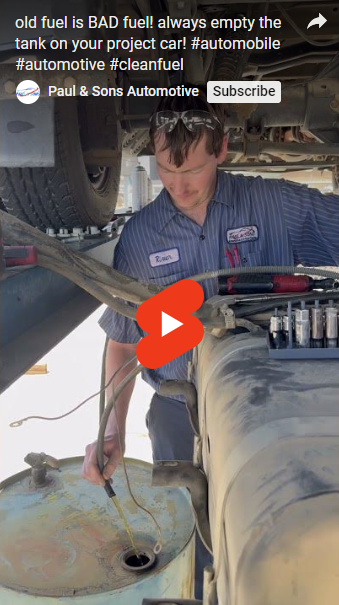
Fuel Degradation Gasoline begins to break down and lose its volatility after about 3–6 months (even faster with ethanol blends). Old fuel becomes gummy and sticky, which can: Clog fuel lines, filters, and injectors Make starting the engine difficult or impossible Reduce combustion efficiency 2. Water Contamination Over time, condensation can form inside a sitting fuel tank, especially if it's not full. This introduces water into the fuel system, which: Can cause rust inside the tank and lines Leads to poor engine performance May trigger corrosion in fuel system components 3. Sludge and Varnish Buildup Old fuel leaves behind residues that gum up critical components: Fuel pumps and injectors can seize or clog Carburetors (on older vehicles) may become unusable The fuel f ... read more
Posted on 11/13/2024

The Importance of Regular Oil Changes for Your Vehicle’s Longevity Regular oil changes are one of the most fundamental maintenance tasks for keeping your vehicle running smoothly. While it might seem like a minor detail in the grand scheme of car ownership, skipping oil changes can lead to major problems down the road. In this blog, we’ll explore why oil changes are so important, how they benefit your vehicle, and the potential consequences of neglecting them. 1. Lubrication and Engine Protection The primary function of motor oil is to lubricate the moving parts inside the engine. The engine is full of metal parts that are constantly moving and rubbing against each other. Without adequate lubrication, friction increases, which can lead to overheating, premature wear, and, eventually, engine failure. Fresh oil helps to maintain a thin protective film between these parts, reducing wear and tear and ensuring that your engine runs smoothly ... read more
Posted on 10/24/2024
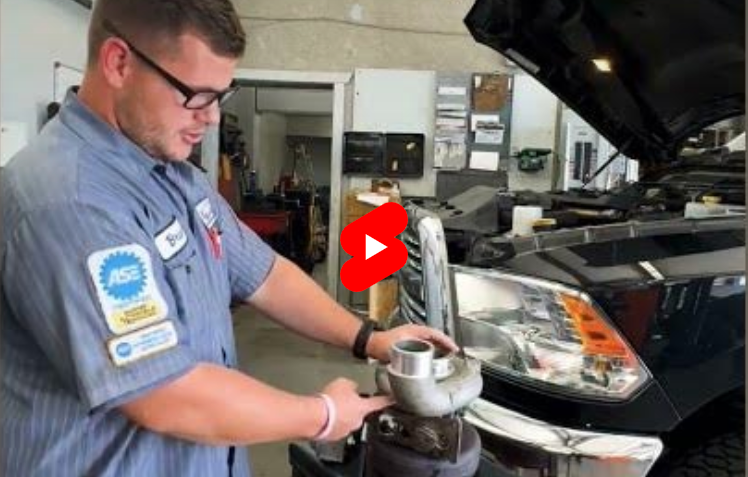
Loss of Power: Noticeable decrease in engine performance and acceleration. Excessive Exhaust Smoke: Blue or black smoke from the exhaust may indicate oil or fuel issues. Whining or Grinding Noises: Unusual sounds coming from the turbocharger, indicating wear or damage. Check Engine Light: Activation of the check engine light, often linked to turbo-related issues. Oil Leaks: Oil around the turbo area can suggest seal failure. Poor Fuel Economy: Decreased efficiency due to turbo malfunction
Posted on 9/11/2024

A clogged fuel pressure regulator in a diesel truck can indeed cause it to die on the road, and here's how that happens: Fuel Flow Disruption: The fuel pressure regulator's job is to maintain the correct fuel pressure in the fuel system. If it becomes clogged, it can disrupt the flow of fuel. In a diesel engine, fuel is critical for maintaining the correct air-fuel mixture for combustion. When the regulator is clogged, it can either cause too much or too little fuel to reach the engine. Inconsistent Fuel Pressure: A clogged regulator can lead to fluctuating fuel pressure. Diesel engines rely on a steady fuel pressure to operate smoothly. If the pressure is inconsistent, the engine might not get the right amount of fuel at the right time, which can cause it to run poorly or stall. Engine Stalling: If the regulator is clogged to the point where it severely restricts fuel flow, the engine might not get enough fuel to sustain op ... read more
Posted on 8/22/2024

When you decline a vehicle repair, it often means that an underlying issue remains unresolved. Over time, this issue can worsen and lead to additional problems. Here’s why this happens: Progressive Damage: Some vehicle issues, like a failing transmission or worn-out brakes, can deteriorate over time if not addressed. This can lead to more severe damage and costly repairs. Compounding Problems: Unresolved issues can affect other parts of your vehicle. For instance, a small oil leak can lead to engine damage if not fixed. Increased Wear and Tear: Neglecting necessary repairs can lead to increased strain on other components, causing them to wear out faster. Safety Risks: Certain issues, such as brake or steering problems, can become more dangerous if left unaddressed, potentially compromising your safety. Addressing repairs promptly helps prevent these cascading effects and ensures your vehicle remains reliable ... read more
Posted on 8/22/2024
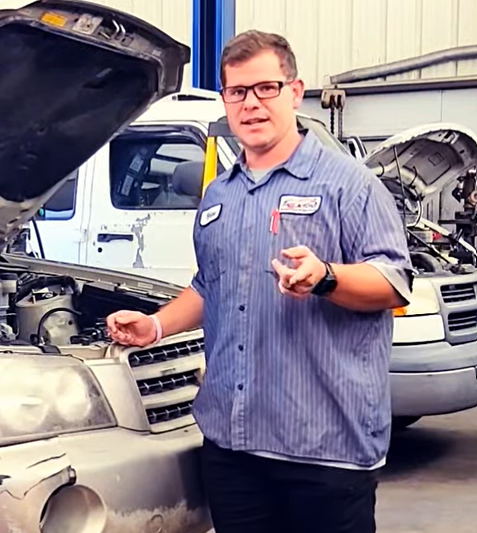
Servicing your vehicle on time is crucial for several reasons: Safety: Regular maintenance helps ensure that all safety systems, such as brakes, tires, and lights, are functioning correctly, reducing the risk of accidents. Performance: Timely servicing keeps your vehicle running smoothly, enhancing overall performance and fuel efficiency. Longevity: Routine maintenance can prevent major issues and extend the lifespan of your vehicle by addressing wear and tear before it leads to significant damage. Cost Savings: Preventative maintenance is often less expensive than major repairs that result from neglected issues. Resale Value: A well-maintained vehicle typically has a higher resale value, as it demonstrates that it has been cared for properly
Posted on 8/14/2024
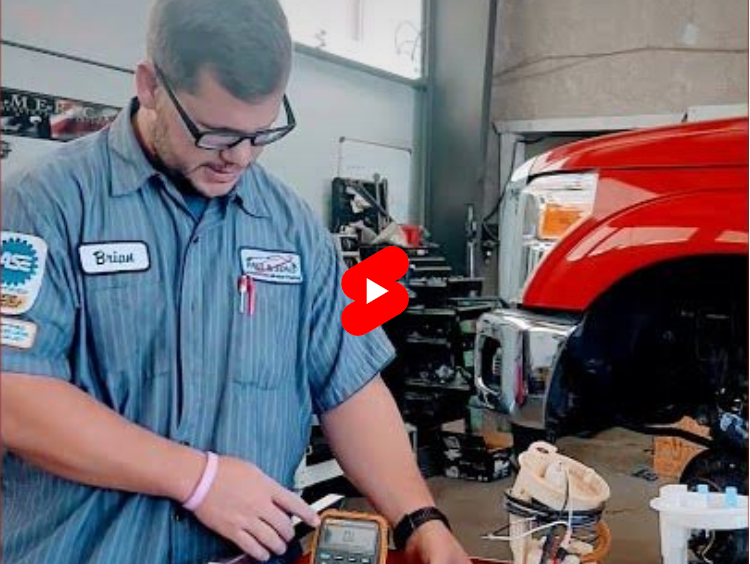
Faulty Fuel Sender Unit: This unit, located in the fuel tank, sends the fuel level information to the gauge. If it fails, the gauge may read incorrectly or not at all. Bad Fuel Gauge: The gauge itself might be malfunctioning or have an electrical issue. Wiring Issues: Damaged or loose wires between the fuel sender and the gauge can cause problems. Blown Fuse: A fuse related to the fuel gauge system might be blown. Grounding Issues: Poor grounding can disrupt the signal and affect gauge readings
Posted on 8/9/2024
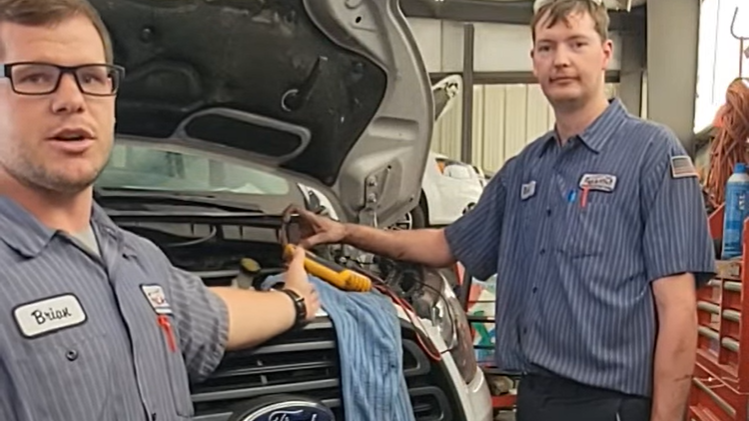
Glow plugs are components used in diesel engines to aid in starting the engine. They heat up the air in the combustion chamber, making it easier for the engine to ignite the diesel fuel, especially in cold weather. When a diesel engine starts, the glow plugs heat up to a high temperature, creating a hot spot that assists in the combustion process. Once the engine is running and reaches operating temperature, the glow plugs are no longer needed and typically turn off. They are crucial for ensuring smooth starts and efficient operation in cold conditions
Posted on 8/5/2024
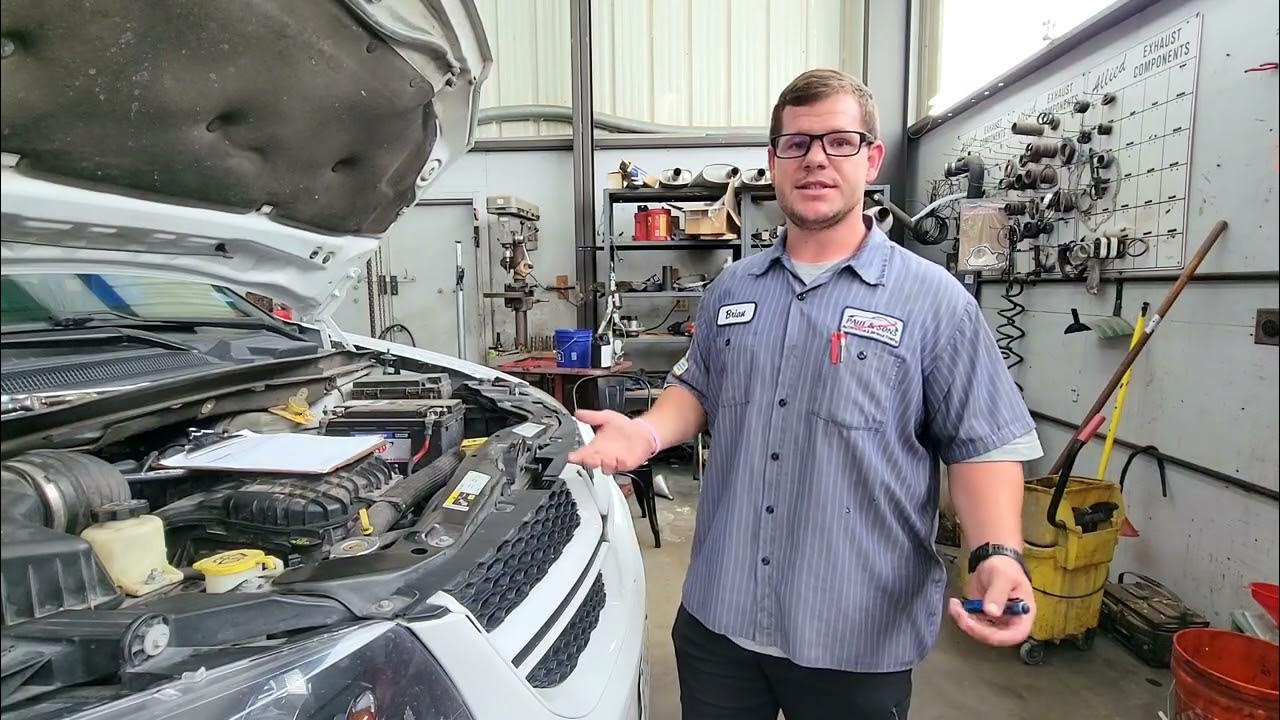
There are several potential reasons your car might be overheating: Coolant Issues Low coolant levels or a leak in the coolant system can cause overheating. Check the coolant level and look for any leaks. Thermostat Problems A faulty thermostat might not open properly, preventing coolant from circulating through the engine. Radiator Issues A blocked or damaged radiator can restrict the flow of coolant, leading to overheating. Water Pump Failure The water pump circulates coolant through the engine. If it fails, coolant circulation stops, causing the engine to overheat. Radiator Fan Problems If the radiator fan isn’t working correctly, it won’t cool the coolant effectively. Hoses and Belts Broken or leaking hoses and belts can disrupt coolant flow and cause overheating. Head Gasket Failure A blown head gasket can allow coolant to leak into the engine, c ... read more
Posted on 7/30/2024
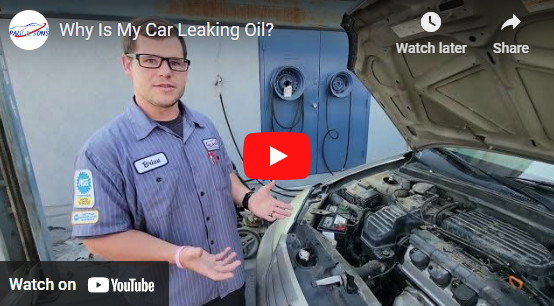
Why is my car leaking oil? An oil leak can be caused by a variety of issues, and it's important to address it promptly to avoid more serious damage. Here are some common causes: Worn or Damaged Gaskets Engine gaskets, like the valve cover gasket or oil pan gasket, can wear out or become damaged over time, leading to leaks. Oil Filter Issues If the oil filter isn’t properly installed or has become damaged, it can cause oil to leak. Sometimes, a loose filter can also be the culprit. Oil Drain Plug Problems The drain plug, which is used to change the oil, might be loose or have a damaged seal, allowing oil to escape. Cracked Oil Pan The oil pan can crack due to road debris or impact, causing a leak. Faulty Oil Pump If the oil pump is malfunctioning, it can lead to oil leaks. Engine Seals Various seals in the engine, such as the rear main seal or front cran ... read more